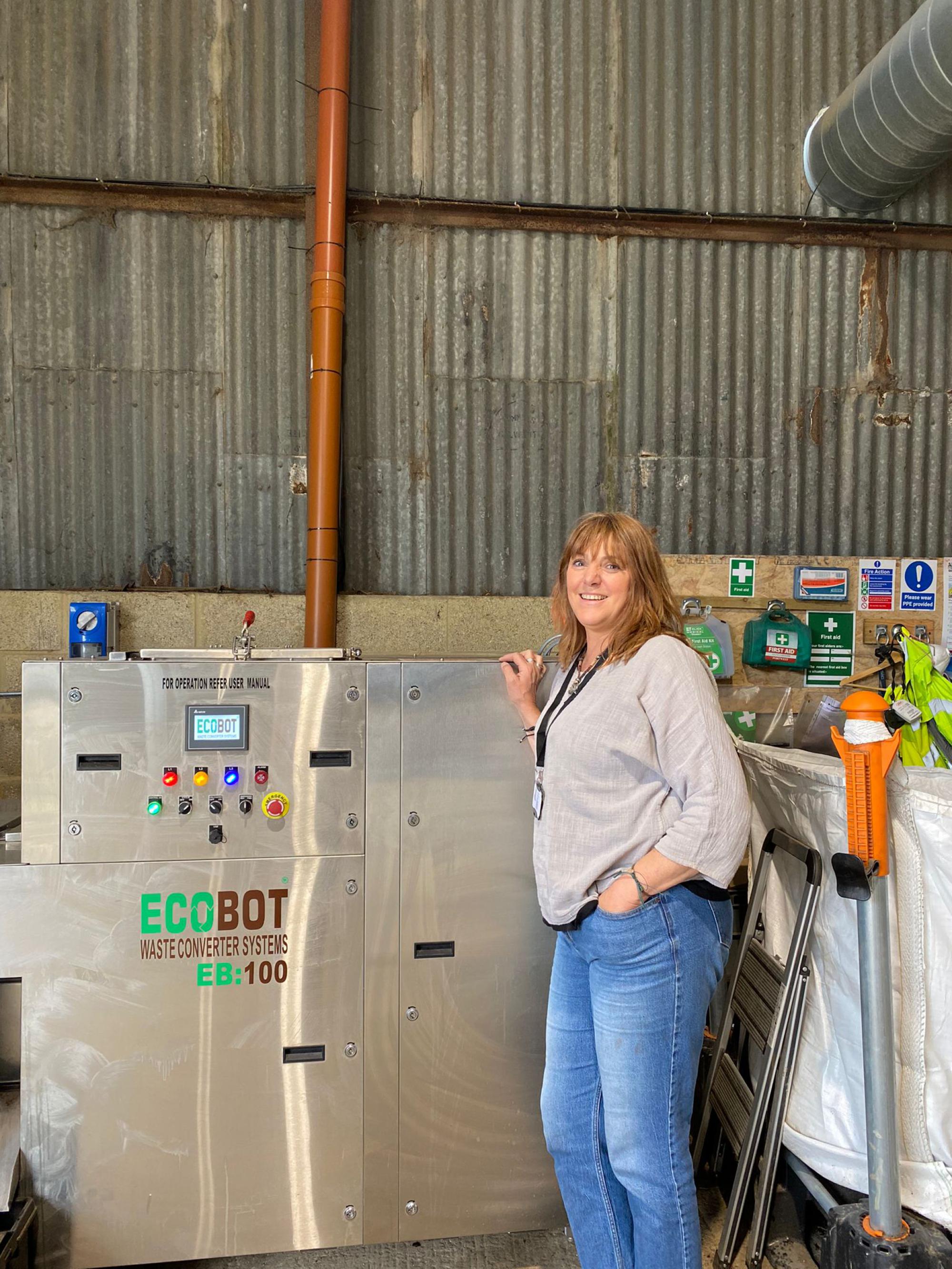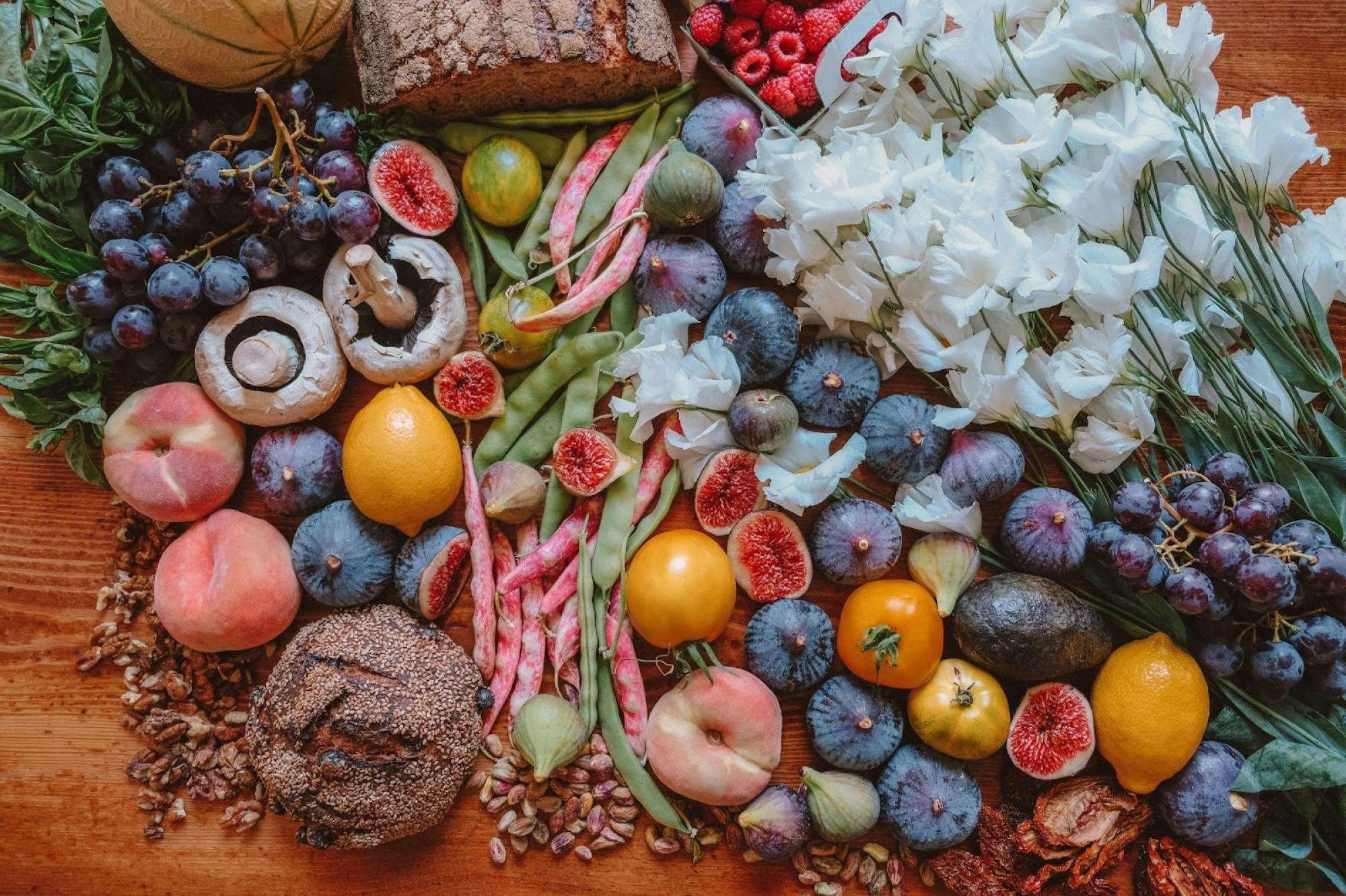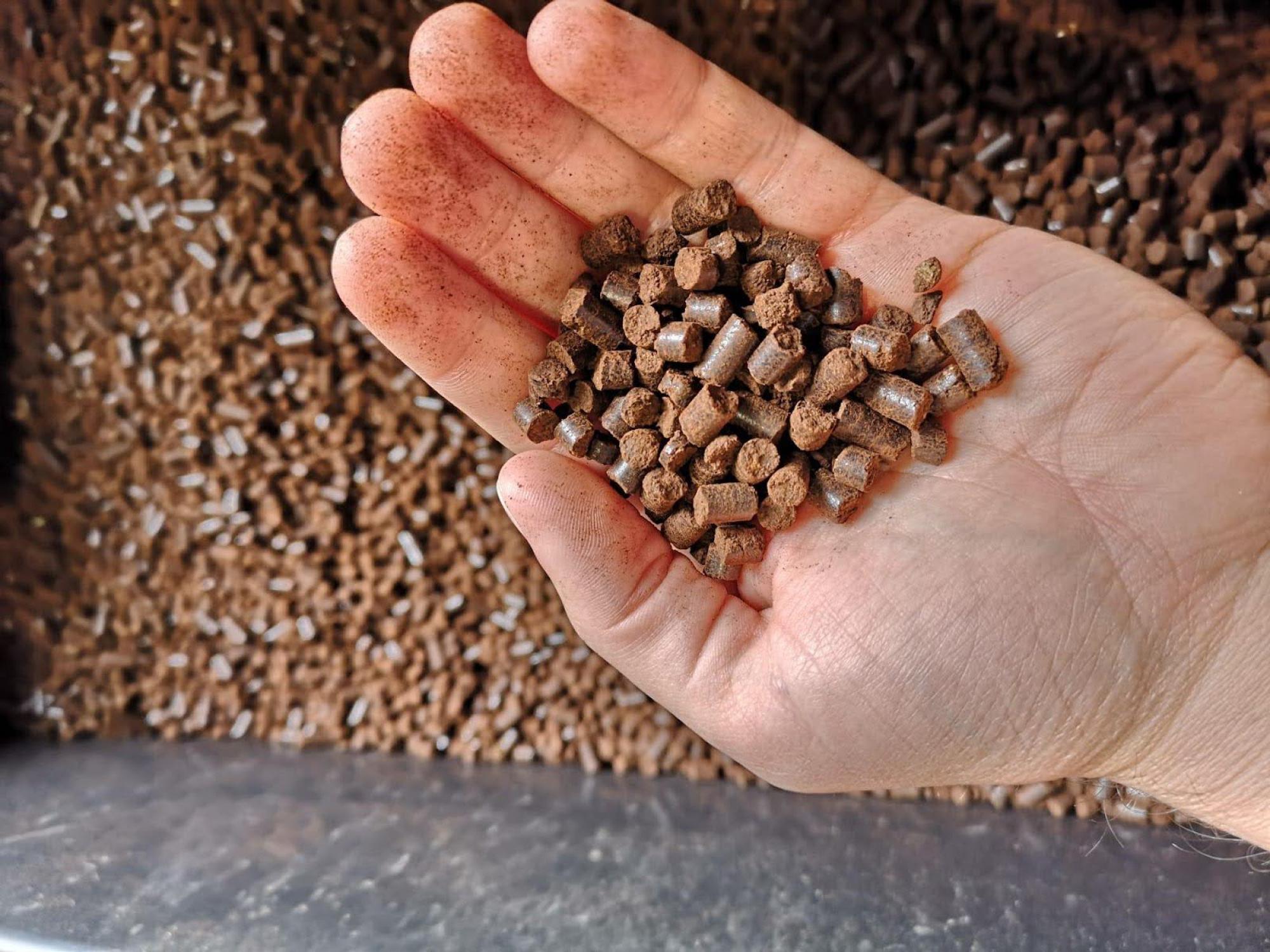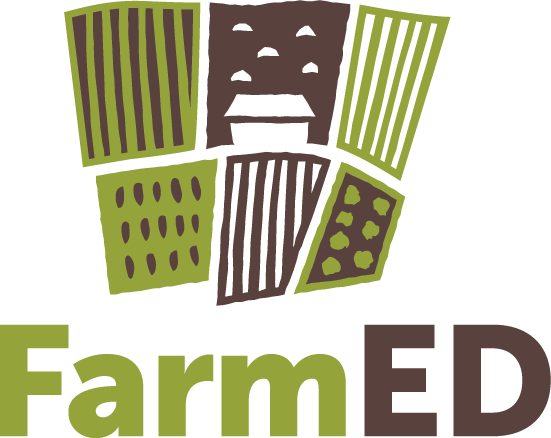Closing the loop: In conversation with Sylvie Verinder
Jul 25, 2024

Last week, two of our team members had the pleasure of visiting Sylvie Verinder, founder of circular waste company, Tumblebug, ahead of her LunchTime Talk. We talked to her about everything from alpaca farmers to the shocking waste crisis in the UK and what we can do to combat it.
At FarmED, we share Tumblebug’s mission of closing the loop on food waste. Since setting up our own composting system last November, our four new tumblers have helped us to move towards this goal. However we know we can do even more. That’s why we were particularly keen to find out more about the amazing work Sylvie is doing at Tumblebug and how we can take steps towards becoming a zero-waste organisation. Read on to hear her story…
“I grew up with arable and dairy farming”, Sylvie started by telling us. “My grandparents were almost entirely self-sufficient, growing their own fruit, vegetables, keeping pigeons, pike and rabbits as well as the more traditional chickens and pigs. Never having a car or travelling abroad they trod lightly on the Earth and bought very little except tea, coffee, sugar and custard powder!”
Being exposed to this rural lifestyle and connection with nature as a child influenced Sylvie to become an environmental scientist and focus her career on Earth’s precious resources, where discovering the sheer amount of organic waste we produce, in particular food waste, motivated her to come up with her own solution.
“I became a landfill scientist after my degree at Plymouth,” Sylvie explained. “I remember the horror when wading across the waste - what are we doing to our planet?”.
After years of moving through different roles within the waste industry, she resolved that the only way to change the system was through changing our approach to education and went on to seek something different where she could make a real impact. Through teaching, her aim was to reshape the approach to the curriculum to address global issues and change the younger generation’s relationship to earth’s natural resources.
Then, in lockdown, her path changed course once again. Sylvie’s friend, an alpaca breeder, was experiencing cancelled visits and struggling with the effects of the pandemic. Alpaca breeders clear the paddocks of manure, often daily, leaving it in a pile to emit greenhouse gases.
Sylvie’s business idea was born - ‘Tumblebug’. She wanted to find a way to capture the nutrients and value in organic waste. Knowing manure is 80% water, she started by designing a system to extract the water and capture the nutrients, converting alpaca manure into high-quality pellets for gardeners, farmers and professional growers to use in their soil.
Sylvie then explored opportunities for cow, poultry and horse manure, and eventually, food waste.
After securing funding from the SHAKE! Climate Programme at Rothamsted Research, Tumblebug focused on creating a peat-free growing medium using biochar made from manure and other organic waste. Greenhouse trials with NIAB confirmed that this mix could be made commercially and harness the benefits of organic materials to create green energy, capture carbon, and make the most of underused organic waste.

We generate 9.52 million tonnes of food waste in the UK each year
Yet, Tumblebug’s real journey started when Sylvie approached Blenheim Palace to partner on a UKRI Human Centred Design project. With an aim of becoming zero waste by 2027, Sylvie helped Blenheim to create a circular system for the estate’s waste and organic resources: turning food and coffee waste from the café, wool and manure from the sheep, ‘waste’ wood from forestry, and horticultural waste from the gardens into compost and fertilisers to put back into the land.
The partnership has since expanded to result in a whole range of innovative products made from waste, including biochar from recycled Christmas trees, sustainable charcoal and sheep wool fertiliser pellets. Tumblebug is also in the process of setting up a mushroom farm, growing shiitake, lion’s mane and oyster mushrooms from recovered coffee, sawdust, card and compostable packaging and turning the spent substrate into fertiliser. The process will also generate green energy.
“We offer a chocolate box of solutions for organic waste,” explains Sylvie. “Our mission is to ‘Recover, Rotate and Regenerate’ organic resources, revitalising soil health and reducing carbon emissions.” With the food waste crisis in the UK getting worse and 9.52 million tonnes of food being wasted each year, Sylvie’s approach has never been more needed.

Spent mushroom substrate pellets created from organic materials
Here at FarmED, we were lucky enough to receive funding from the Farming in Protected Landscapes (FiPL) programme from Cotswold National Landscapes for four brand new compost tumblers last year. In an assessment, we found that our kitchen and cafe generated a minimum of 50kg of food waste per week. Only 15% of this was being composted, and we are pleased to say that this figure has now reached nearly 100%. After the waste has rotted down over several months, it will eventually be spread onto our arable fields, agroforestry strips and market garden.
However, there is more work to be done. Speeding up our composting system and adding in other organic materials, such as biochar, will help us to increase the fertility of our soil, reduce emissions produced in landfill, and reduce our need for bought-in organic fertilisers and compost. We’re excited to see where our journey will take usSylvie’s journey from a landfill scientist to the founder of Tumblebug is a true testament to the power of passion and a commitment to making a change in the world. Sylvie is not only changing the way we reduce and view our resources, but also fostering a deeper connection with Earth’s resources. Her legacy will be a healthier planet for future generations. Interested in finding out more? Sylvie’s LunchTime Talk here on the farm will be held on 21st August. Click here to book your tickets. You can also discover more on Tumblebug’s website.
Useful links
Discover how you can reduce your own waste by finding out more about local food-waste initiatives. Change is right on our doorstep:
Witney Food Revolution
Charlbury Sharecroppers
Chippy Larder
Replenish Oxfordshire
Good Food Oxfordshire
Recent news items




